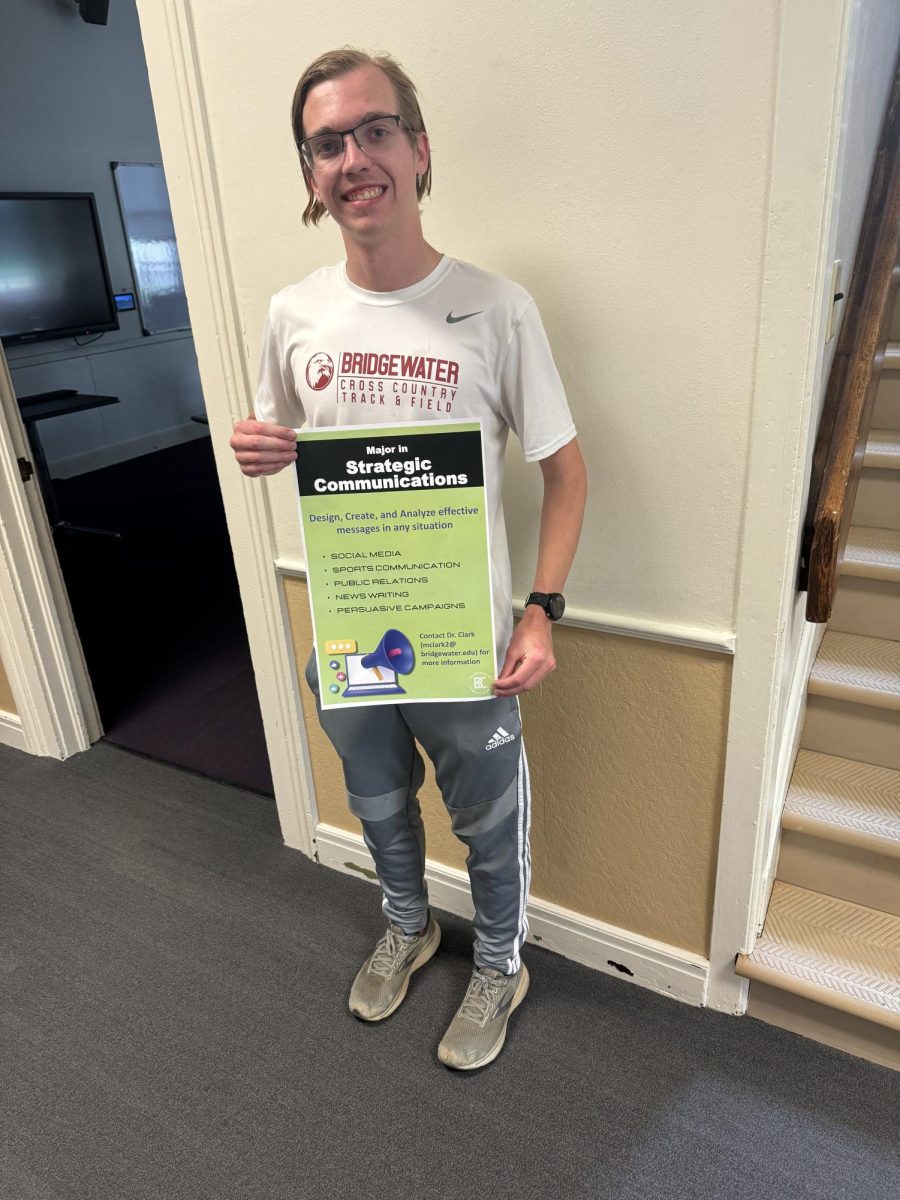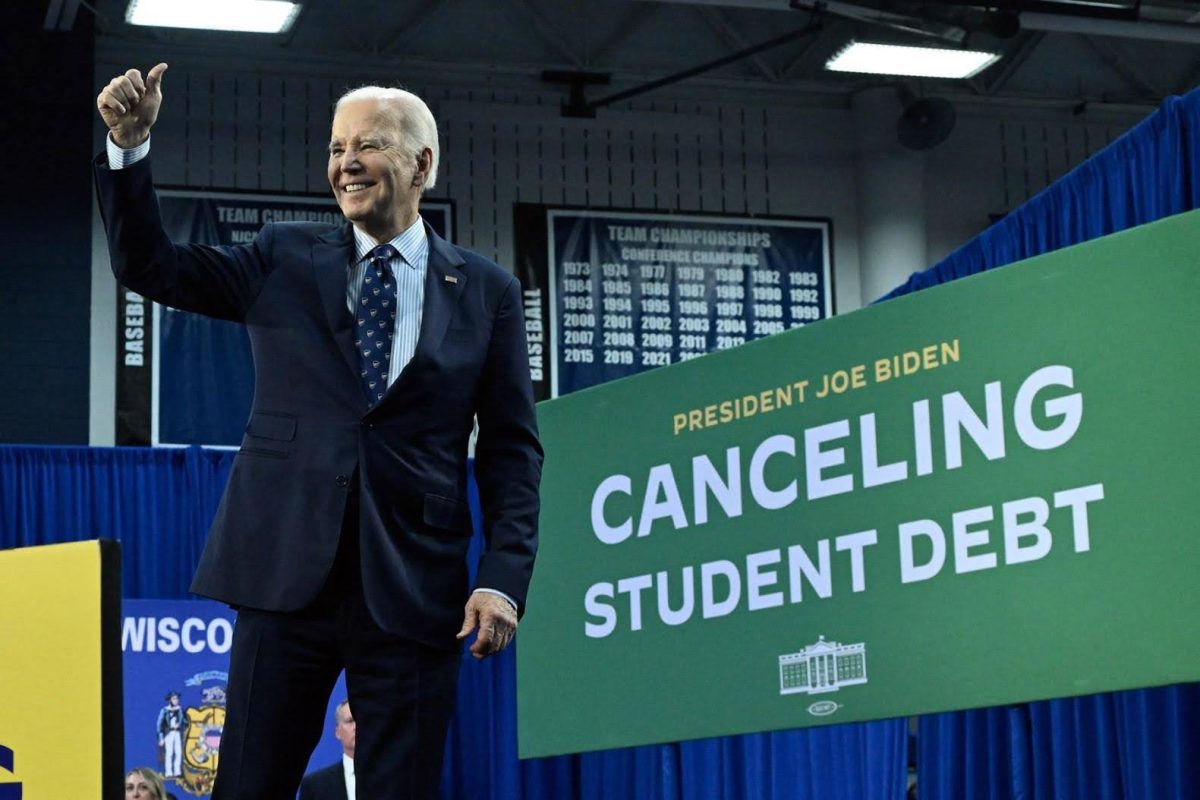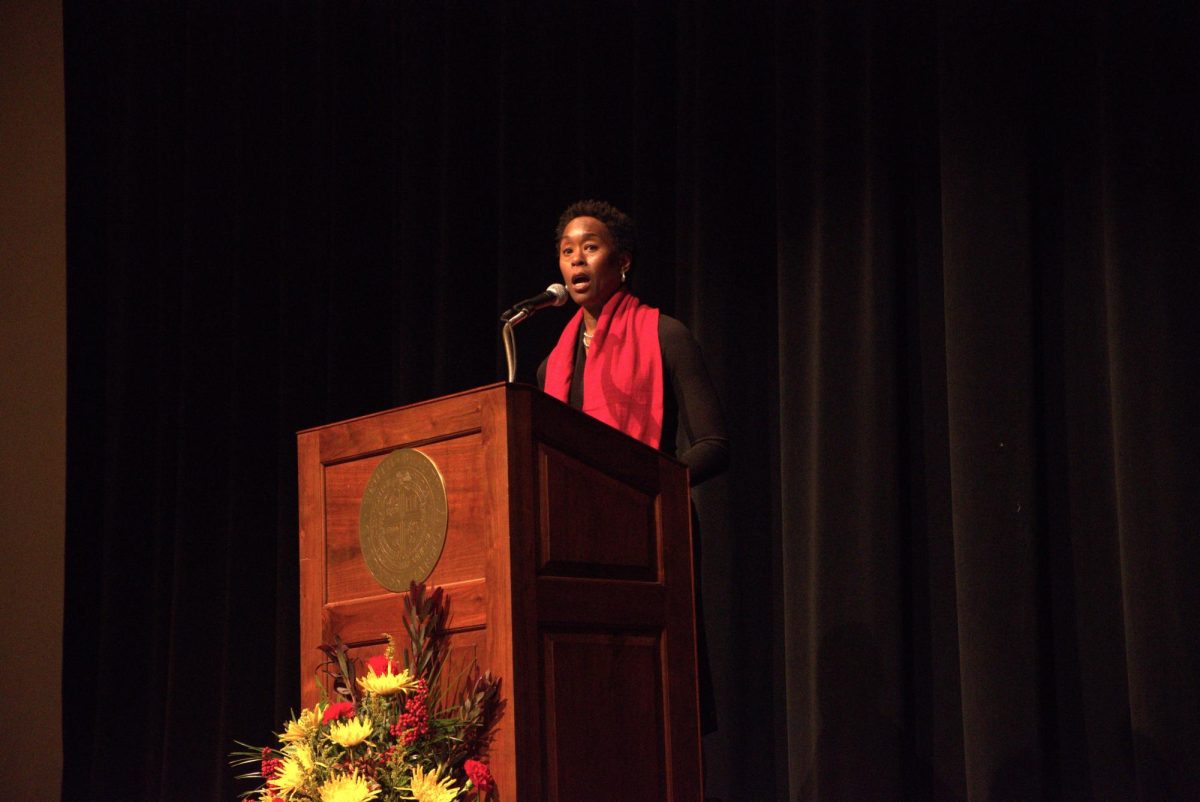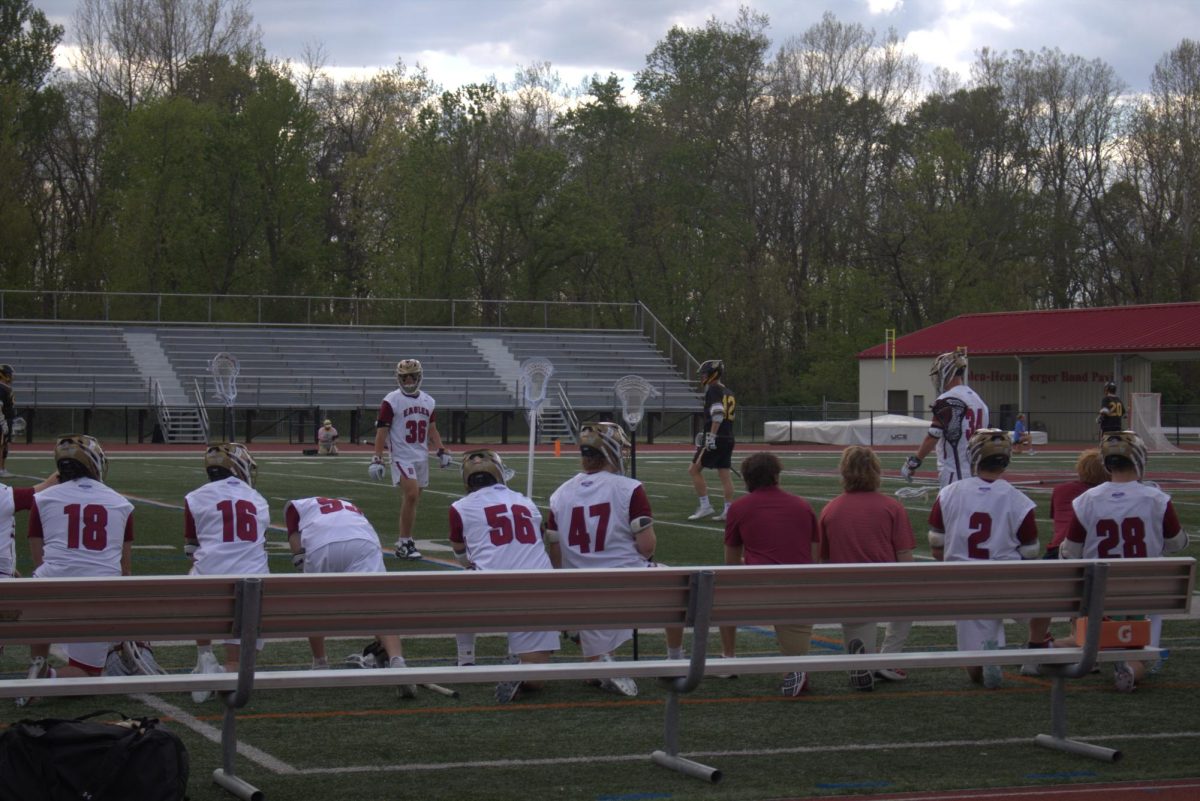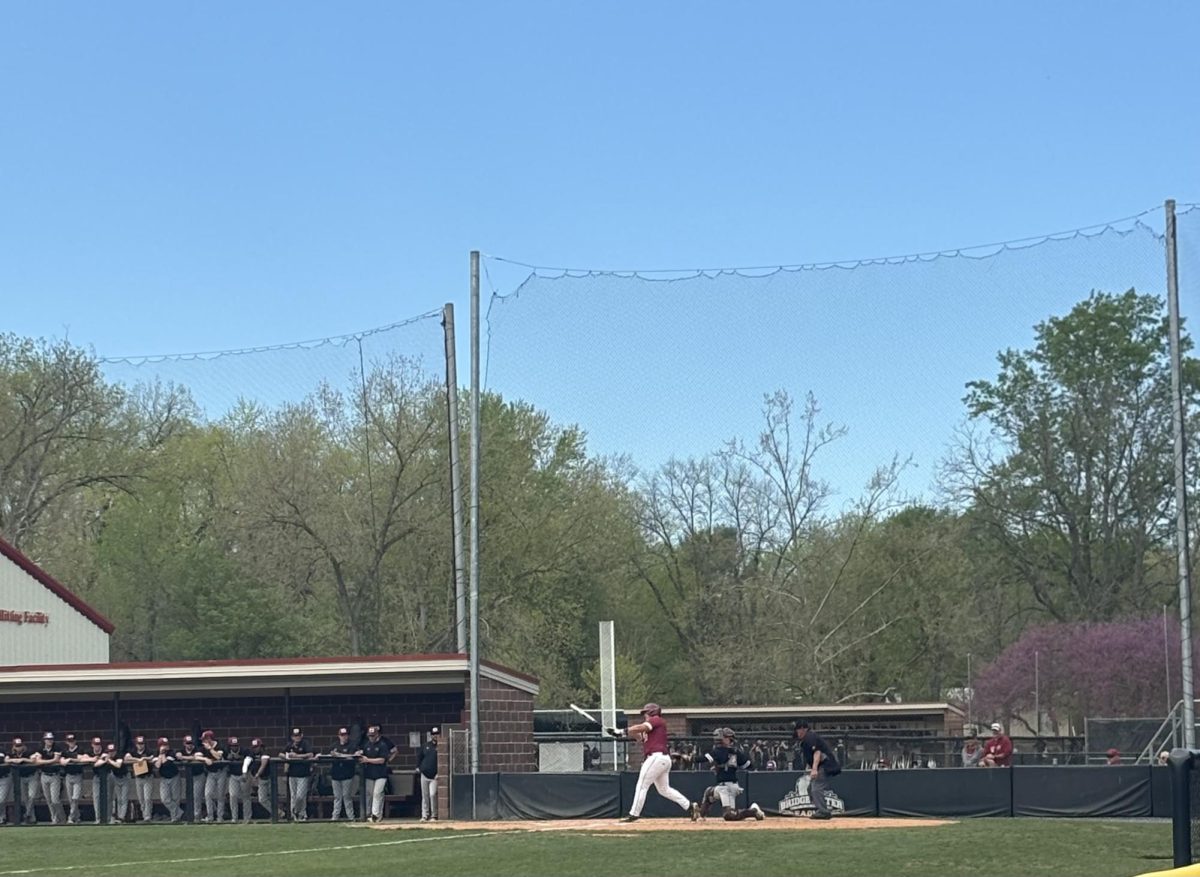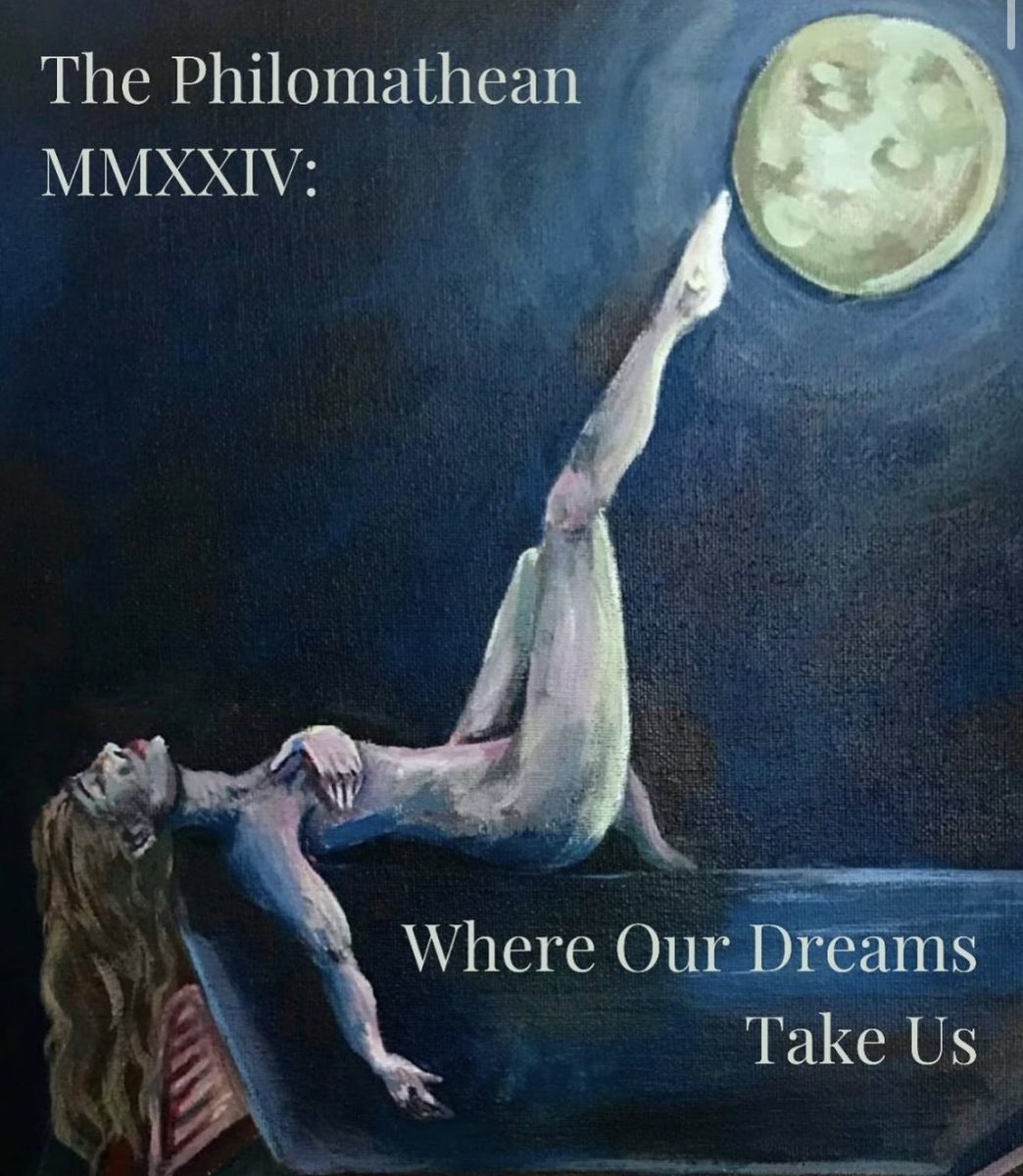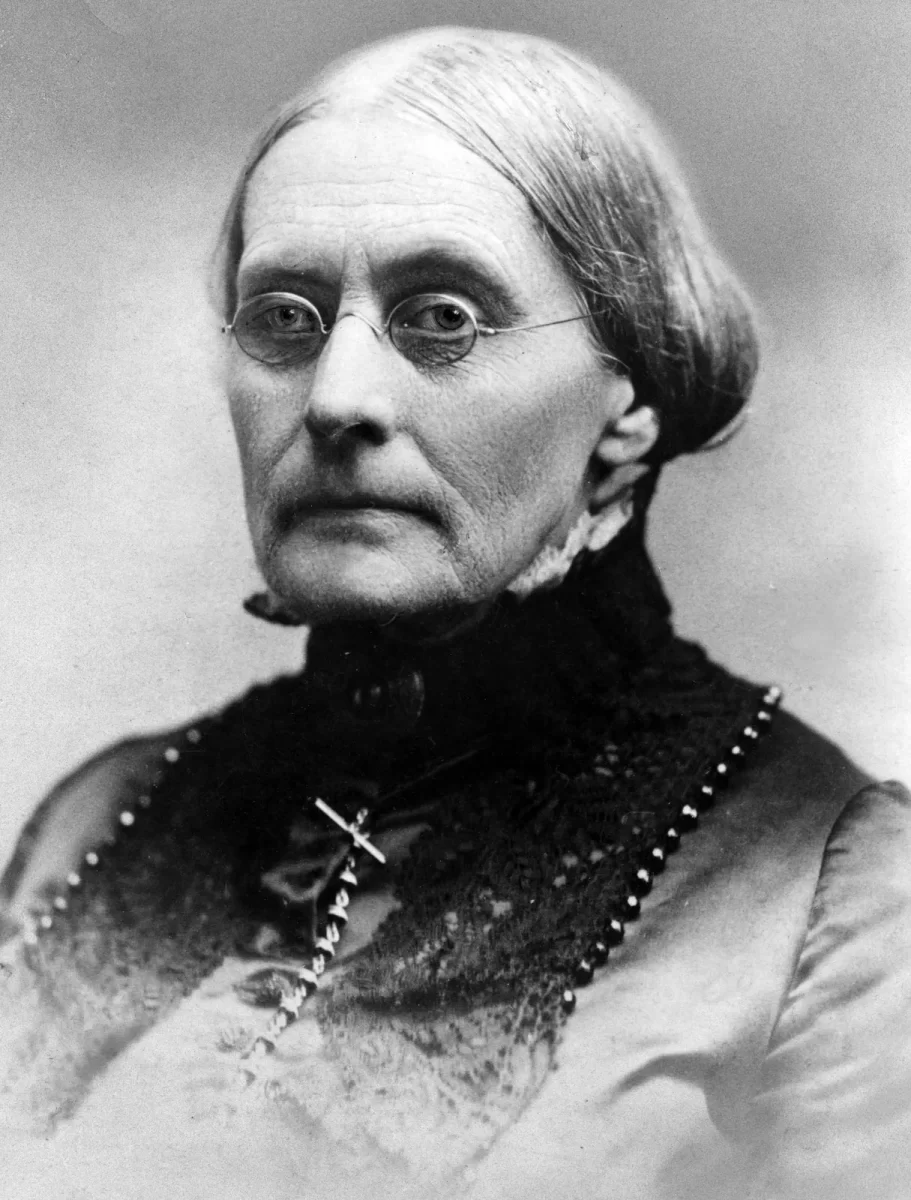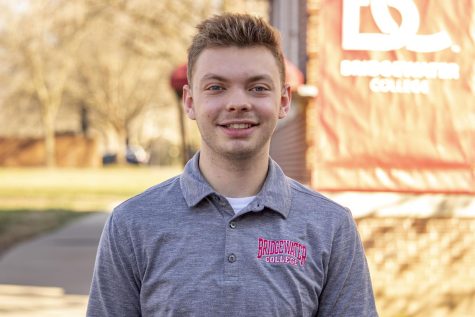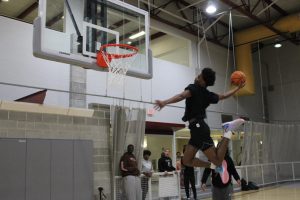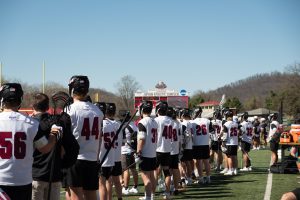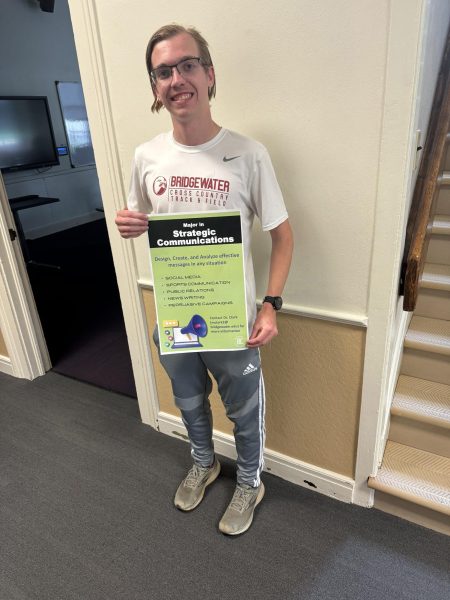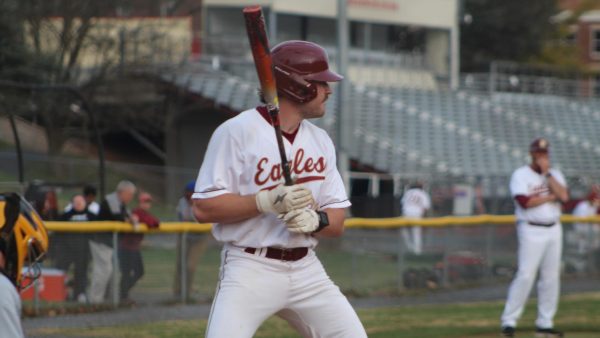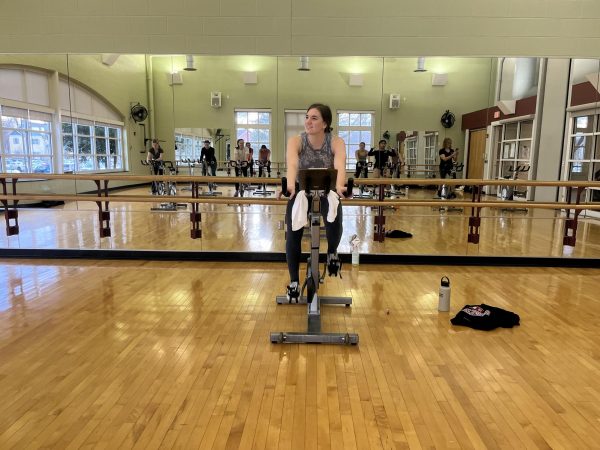Adam’s Law Impacts Several Clubs on BC Campus
Bridgewater College Student Life
The Club and Org fair on Wednesday, Sept. 7 provided one of the last calls for students to join the five clubs impacted by Adam’s Law. More than ever before, the Club and Org fair served as an important time frame to recruit potential members.
September 9, 2022
Bridgewater, Va.- Some Bridgewater college clubs are facing stricter training requirements and enrollment processes this semester after being impacted by Adam’s Law, an anti-hazing bill passed by the Virginia Senate.
In response to the hazing related death of VCU freshman Adam Oakes, Adam’s Law was passed unanimously by the Virginia Senate in late January 2022 as a countermeasure against college hazing. A major part of the bill requires impacted club advisors and members to undergo anti-hazing training in order to stay inducted.
The main initiative of Adam’s law is to train advisors and club members about the warning signs of hazing to prevent it from happening on campus. A second element of the law requires that if any club on campus has a hazing issue, it will be reported and put on the college’s website.
“In sum, the law requires that certain campus clubs undergo anti-hazing training based on whether or not they have a ‘waiting period’ or vetting process to become a member,” said Coordinator of Student Engagement & Leadership Sam Huyard. “While the law does not currently require all clubs to undergo training, given the importance of anti-hazing, we are reviewing the feasibility of providing hazing training for all campus organizations to ensure the safety of our students.”
Out of the 60 clubs on the Bridgewater campus, five must follow the regulations of Adam’s Law including the CEO club, APO, the investment club, pinion players and tri-beta. This is due to the language in their constitutions suggesting a period between potential interest and membership.
If a club has an audition process or recruitment period, they are required to abide by Adam’s Law.
“The language of the law designates that student organizations that are recognized by Bridgewater which are structured in a way that includes a waiting period following invitation or interest and becoming an official member are required to have training,” said Huyard. “Currently, the law does not include varsity intercollegiate or club athletic teams.”
While some clubs actively follow their constitutions, others have not been updated in recent years and therefore must follow Adam’s Law, despite their outdated constitution. Pinion Players is one club experiencing this, which hopes to update their constitution this spring.
“The 20-year-old constitution we have for the club was designed for a Greek club,” said Pinion Players president Adam Lorfink. “Adam’s Law took us all by surprise. It does not really affect us too much as we don’t have memberships. We are open to everyone.”
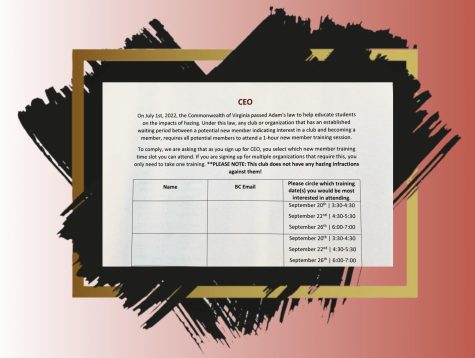
Active members and potential members have different dates for anti-hazing training. Any active members must take part in the training on either Sept. 15 or 17, and potential new members must choose between Sept. 20, 22 or 26 in order to be a part of the club.
In addition to anti-hazing training, clubs must tell all potential new members that they are a club that is affected by Adam’s Law. Potential new members also had to sign a paper at the Club and Org fair committing to the training date of their choice.
Due to the training session regulations, no new club members may be accepted into a club after Sept. 14 until the Spring 2023 semester. Some students feel this could impact the membership of their club.
“Some of the clubs affected don’t do these things that flagged them under Adams Law, and some of them are already struggling with membership,” said senior business administration major Katie Brooks. “Now that they have to say that all members have to go through anti-hazing training because they fall under Adam’s Law, it is going to make already low numbers get even lower.”
According to Brooks, the training session is set to be just one hour, and she does not believe that Adam’s law will negatively impact the CEO club, apart from the inconvenience that potential members can not show up to club meetings on a whim.
While Adam’s Law is a measurement against anti-hazing, affected clubs are not being accused of that behavior.
“Groups required to undergo this training have not necessarily been found responsible for hazing or have hazed members in the past,” said Huyard. “This law and the requirements therein are intended to be preventative—to keep students informed and safe.”


